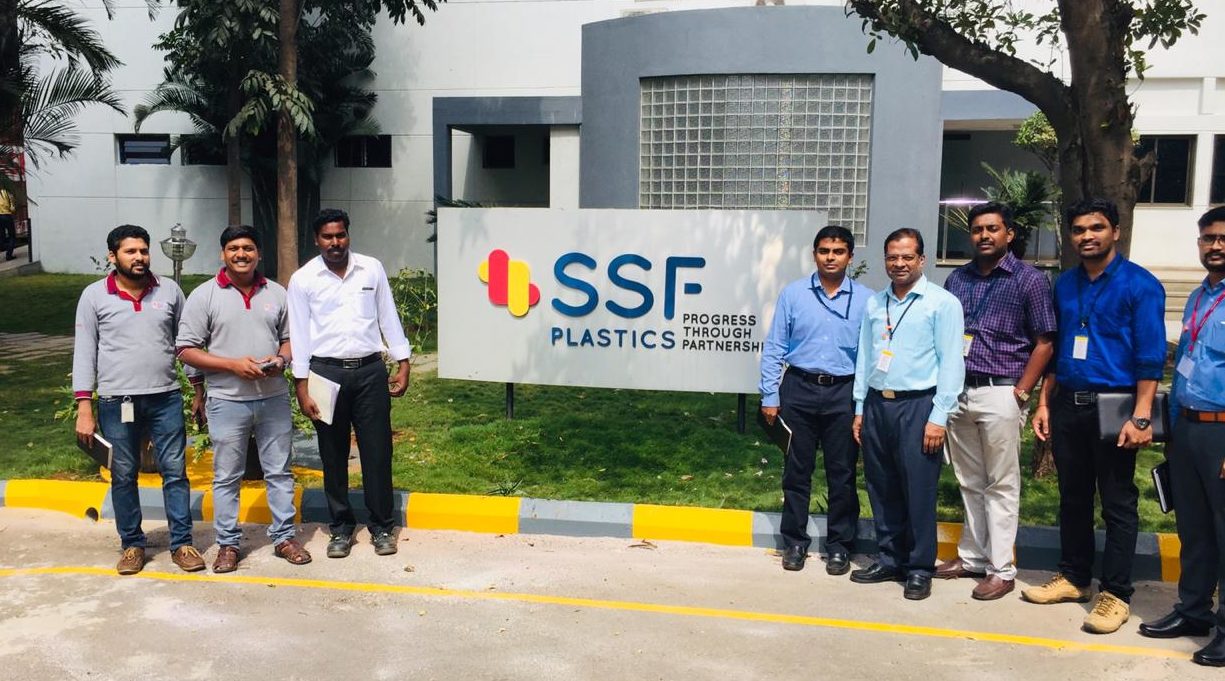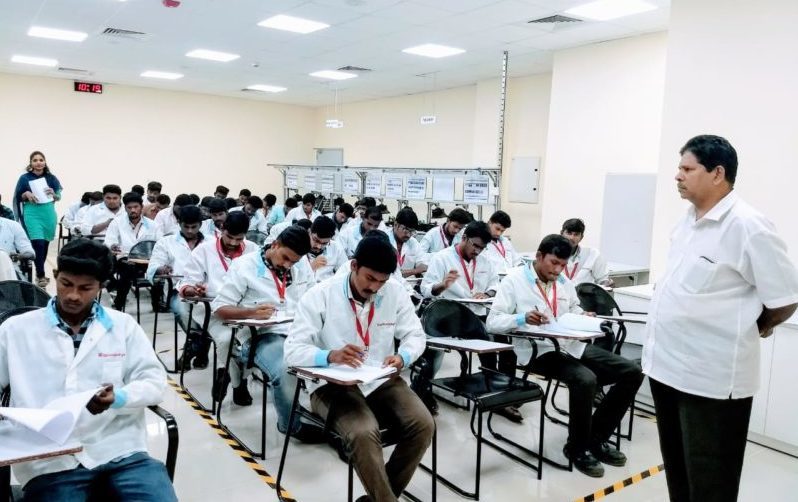Over the past few years, device-manufacturing companies have demonstrated a steadily increasing demand for basic technical works. In India, a country renowned for the staggering growth of its electronics market, the lack of entry-level technical skills poses a great challenge to the security of the tech industry.
ASSIST, in partnership with Salcomp and KfW DEG, a market leader in manufacturing smart gadgets and a German development finance institution respectively, has launched a project to train the local workforce in India with basic electronics and machine maintenance knowledge required for them to meet the industry standards. This project, entitled SWITCH, stands for Skilling Workforce and Improving Quality Standards to Channelize Growth in Electronics Industry; and is characterized by two key features – Skills Training and QEHS (Quality, Environment, Health, and Safety) Gap Assessment.
Mainly focused on training the unemployed youth, the project has completed the training for its first batch of 18 students within the first quarter of 2019. These 18 students were later recruited by Salcomp to join their company. The second batch of 60 students are in the midst of their training. And, in line with the International Women’s Month Celebration last March, the project has included a third batch of training comprising 35 women.
Furthermore, to better understand the specific context of device-manufacturing companies and suppliers, the SWITCH project conducted a QEHS Gap Assessment for ten of Salcomp’s suppliers across the cities of Chennai, Bangalore, Hosur, Coimbatore.
SWITCH is an ongoing project that aims to train many more students for the duration of its program.


